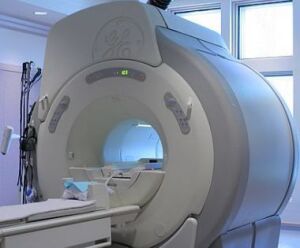by
Brendon Nafziger, DOTmed News Associate Editor | December 02, 2010
For one woman, an MRI scan might have made a difference: a 15-millimeter speck invisible on a mammogram was revealed as a tiny but dangerous mass on an MRI read. The mass turned out to be invasive ductal carcinoma, a common and serious form of the disease.
The case of the woman -- who had already been treated in the past for breast cancer -- was part of a study presented Monday at the Radiological Society of North America's 2010 annual meeting in Chicago in which researchers suggest that women who have had breast cancer should consider annual MRI scans to pick up new cancers that might be missed by mammography.
The retrospective study challenges current American Cancer Society guidelines that suggest only women with a genetic risk, such as BRCA 1 or BRCA 2 mutations, or a family history of the disease should mull yearly screenings with MRI.



Ad Statistics
Times Displayed: 186679
Times Visited: 5014 For those who need to move fast and expand clinical capabilities -- and would love new equipment -- the uCT 550 Advance offers a new fully configured 80-slice CT in up to 2 weeks with routine maintenance and parts and Software Upgrades for Life™ included.
The society says there isn't enough evidence to make a recommendation one way or the other for women with a personal history of the disease.
But in the study, which reviewed MRI results of more than 1,000 women, women who had had cancer were more than twice as likely to have the disease detected by MRI than those with a genetic or family history. Also, they had a lower recall rate, and biopsies recommended in the personal-history group were more likely to yield cancer, according to the study.
The results "[demonstrate] the value of MRI in this patient population" Dr. Wendy B. DeMartini, assistant professor of radiology at the University of Washington Medical Center and Seattle Cancer Care Alliance, said at a press conference Monday.
In the study, researchers examined MRI results from 1,026 women scanned between Jan. 2004 and June 2009. In this group, one-third (327) had genetic or family risks and the rest (646) had been treated for the disease.
According to the study, the MRI scans revealed cancer in 3.1 percent of the women with a personal history but only 1.5 percent of women with the genetic or family indications. For those with a personal history, the scans were also more specific -- that is, more likely to rule out false positives and to lower the recall rate. They were 93.6 percent specific for this group, as opposed to 86.3 percent specific for women with the high-risk family histories. (The MRI scans were about 92.6 percent sensitive overall, discovering 25 out of 27 cancers, according to the study.)
The scans also led to relatively fewer biopsy recommendations for the personal-history group (9.3 percent versus 15 percent) and those biopsies were about three times more likely to yield cancer (35.7 percent versus 12.2 percent).
Nonetheless, it's likely too soon to start making definitive recommendations. The scans are expensive, around $1,000 to $2,000 a pop, DeMartini said, and more studies are needed -- ideally, prospective ones -- to validate the results.

